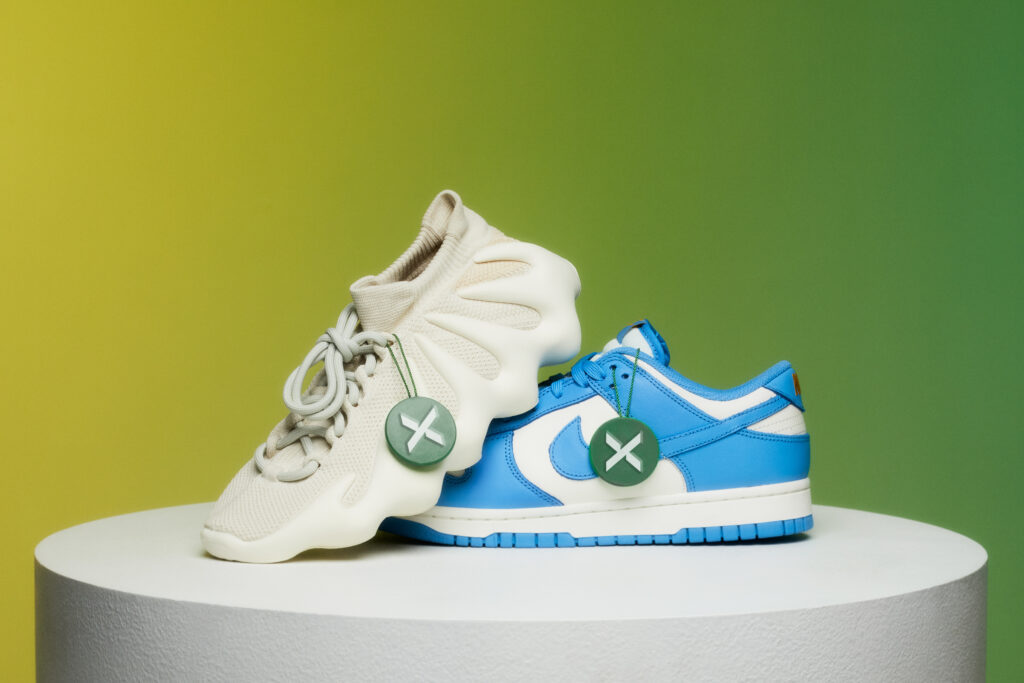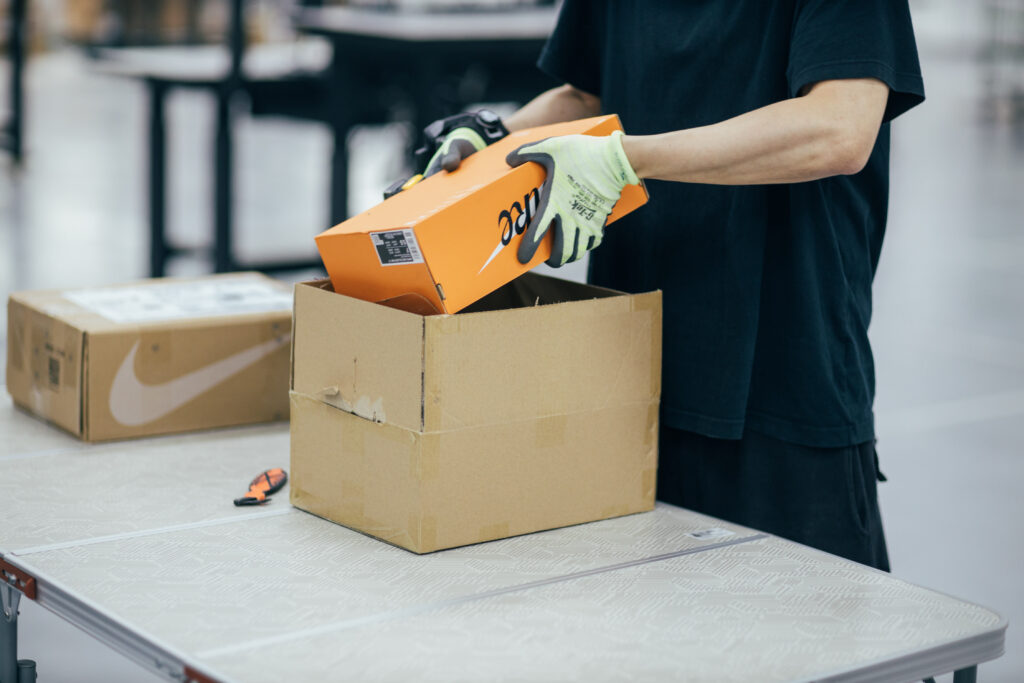The Birth of a Marketplace Revolution.
In 2016, in downtown Detroit, a disruptive idea took shape—one that would forever change the way people buy and sell limited-edition sneakers, streetwear, and collectibles. StockX, the brainchild of Greg Schwartz, Josh Luber, Dan Gilbert, and Chris Kaufman, was built on a simple yet revolutionary premise: bring stock market principles to the resale market.
Co-founder Josh Luber described this vision succinctly in an interview: “The stock market has been the most efficient form of commerce for 200 years. All we did was take those principles—once applied to stocks, bonds, oil, and gas—and redirect them to a new asset class: sneakers, streetwear, watches, and handbags.
”What started as a sneaker-focused resale platform has since evolved into a global live marketplace, offering high-demand products across multiple categories. Today, StockX is the ultimate destination for buyers and sellers looking for fair pricing, trust, and transparency in an industry often clouded by counterfeits and fluctuating demand.

How StockX Works: A Data-Driven, Trust-Centric Model
Unlike traditional e-commerce platforms, StockX operates like a stock market—where prices are based on consumer demand, putting power in the hands of the customer. Real-time data is available for every product on the platform, with current bid prices, last sale prices, and price fluctuations displayed transparently. This unique approach removes guesswork from the resale industry, allowing consumers to see the true market value of items before making a purchase.
But what truly sets StockX apart is its ironclad commitment to verification. The platform has invested millions in its verification program, which includes fighting fraudsters and counterfeiters. Only “deadstock” items— new, unworn products—are allowed on the platform (with some exceptions), ensuring buyers receive premium-quality items.

Scaling Up: From Sneakers to a Billion-Dollar Empire
StockX’s journey began over nine years ago, when co-founder Josh Luber started compiling sneaker sales data from eBay, which led to the creation of Campless, which he dubbed the Kelley Blue Book for sneakers. At the same time, Detroit-based entrepreneurs Dan Gilbert and Greg Schwartz were developing a business concept that applied stock market mechanics to consumer goods. Their decision to start with sneakers led them to Luber, whose insights into the booming sneaker resale market helped traders and collectors navigate pricing trends.
By 2015, Josh Luber joined forces with Dan Gilbert, Greg Schwartz, and Chris Kaufman to launch StockX as a next-generation, data-driven resale marketplace. Within a year, the company set up its headquarters in Detroit, launching in 2016.
The response was electric. By 2017, StockX had expanded beyond sneakers, tapping into streetwear, watches, and other luxury collectibles, capitalizing on the growing “drop” culture—where limited-edition items are released in small batches, driving demand and resale value.
In 2018, StockX went global, launching an office and verification center in London to meet increasing demand. By 2019, the company had reached Unicorn status, valued at more than $1 billion following investment rounds backed by firms such as GV, Detroit Venture Partners, DST Global, and General Atlantic—along with high-profile investors like Eminem, Mark Wahlberg, and Karlie Kloss.
The pandemic-fueled surge in e-commerce accelerated StockX’s growth. With millions of consumers stuck at home, demand for rare sneakers and collectibles surged. By 2021, StockX had processed over 50 million lifetime trades and was valued at $3.8 billion.

The Power of Scarcity and Liquidity.
At the heart of StockX’s success is its ability to balance scarcity and liquidity. The platform works for any product that has an active market and community of collectors, but it’s most applicable for things that continuously trade. This model has made StockX the go-to platform for collectors, investors, and enthusiasts alike, allowing them to buy and sell sought-after products with the same precision and confidence as Wall Street traders.
The Detroit Connection: A Story of Reinvention.
StockX’s success is deeply intertwined with the city it calls home—Detroit. A city once defined by its industrial might and later by its economic struggles, Detroit is undergoing a remarkable renaissance, and StockX is a key player in this transformation. Headquartered in downtown Detroit, StockX has helped redefine the city as a hub for tech innovation and entrepreneurship, proving that Detroit is more than just the Motor City—it’s a city of reinvention.
StockX has also played a critical role in job creation, investing in local talent to help fuel its growth. By establishing its roots in Detroit, StockX has contributed to the city’s broader economic revitalization, inspiring a new wave of startups and tech entrepreneurs to see Detroit as a place where big ideas can thrive.
Beyond its economic impact, StockX is also committed to giving back to the community. Through partnerships with local organizations and initiatives that support pillars including but not limited to arts and culture, youth entrepreneurship, and racial equity, the company is actively shaping a better future for Detroit’s next generation.

As CEO Greg Schwartz puts it, “Detroit is part of our DNA. It’s a city that has always been about hustle, resilience, and reinvention—just like StockX. We’re proud to be a part of its story.”
Greg Schwartz captured the essence of this shift in a previous interview: “Sneakers to us are like what books were to Amazon. It was always about much more than just sneakers.” StockX had positioned itself as more than just a resale platform—it had become a cultural and economic force shaping current culture.
The Future of Resale is Here
StockX isn’t just an e-commerce platform; it has sparked a movement that redefines consumer behavior and digital commerce. It has revolutionized the way people engage with fashion, collectibles, and other high-demand consumer goods. By fusing data science with verification, trust, and transparency, StockX has redefined resale commerce and, in the process, created entirely new asset classes.
With over 35 million monthly visitors, 1,000 employees, and more than 200,000 unique products, StockX continues to shape the future of retail. As the company expands, Detroit’s own StockX is proving that innovation can truly disrupt an entire industry. The revolution is just getting started.
















